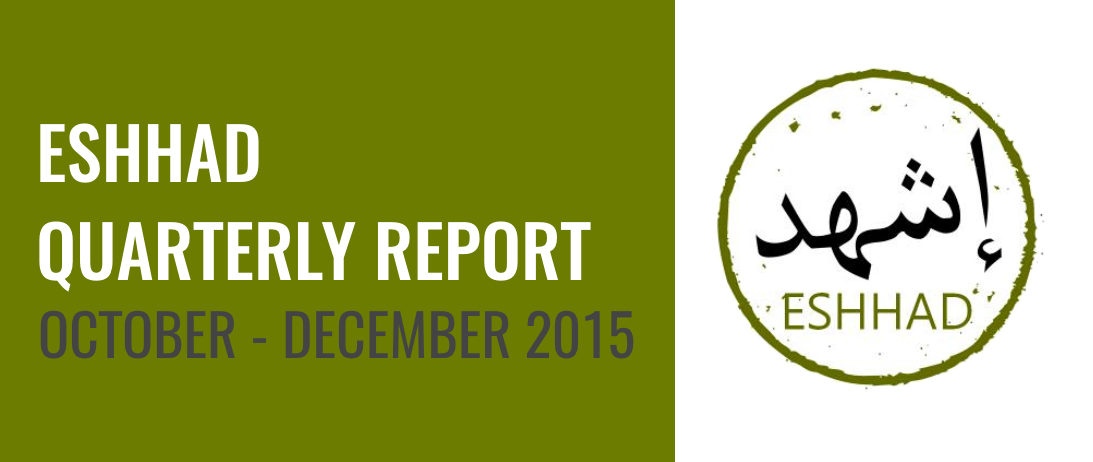Overview
Since its inception, Eshhad has documented over 400 sectarian incidents occurring on or after August 14, 2013 in Egypt. In the last quarter of 2015, Eshhad recorded 33 sectarian incidents in Egypt (compared to 35 in the previous quarter. Minya remains the province with the highest number of incidents throughout the year marking 11 attacks in the last quarter of 2015 and 51 throughout the year. Abductions and disappearances were the most commonly reported incident type of sectarianism with 9 incidents in the last quarter of 2015 and 30 in total. The quarterly reports provide an overview of the trends of sectarian incidents in the country while providing analysis of the significant developments that occur with respect to attacks, legislation and court cases, as well as representation in the newly formed parliament.
This report is Eshhad’s first quarterly report, covering October, November, and December of 2015. Section II discusses trends that Eshhad has identified over the past three months compared to the rest of the year. Section III discussessectarianism and security, particularly the difference between the direct and indirect involvement of security forces in sectarian incidents across the country. Section IV follows court decisions or related matters as it pertains to sectarian incidents or other forms of discrimination. Section V discusses minority representation in parliament. In future issues, this section will look at legislation and other matters involving parliament. Section VI follows the media and sectarian incitement, and Section VII is a brief summary of Eshhad’s methodology and researchmodels.
Eshhad
Eshhad is a project that tracks incidents that are sectarian in nature. Eshhad is currently incubated as a project of the Tahrir Institute for Middle East Policy (TIMEP). It first began tracking incidents in Egypt on August 14, 2013, and was formally launched with TIMEP on September 4, 2015.
While there is no single political or legal definition of sectarianism, for the purposes of the database and map, Eshhad defines sectarianism as actions that are motivated—in whole or in part—or colored by bigotry, discrimination, or hatred regarding perceived differences between divisions within a group on account of a minority status, whether religious, ethnic, or another defining feature, by state or non-state actors.
Eshhad’s specific focus is sectarianism of a religious nature. Sectarianism includes both non-state and state actions. Further, sectarianism can be committed against persons, private properties, or religiously affiliated entities. The means by which sectarianism can occur include but are not limited to verbal threats, media incitement, discriminatory legal policies, kidnapping, the taking of personal property, physical violence, and murder. Eshhad’s focus is on religious minorities in Egypt including Bahá’í, Christian, Jew, Non-Religious, Quranist, and Shia, as well as other isolated incidents against other groups including one incident involving an Ahmadi (2013).

